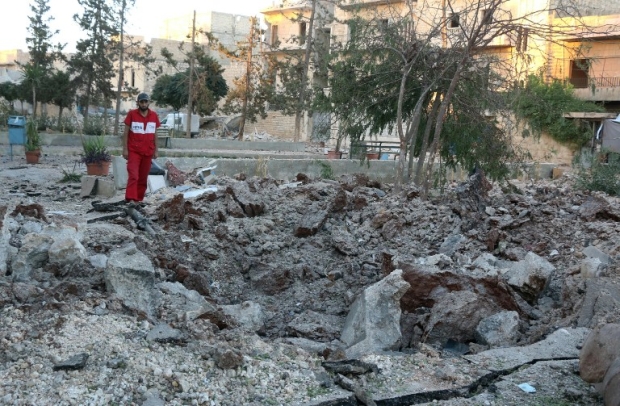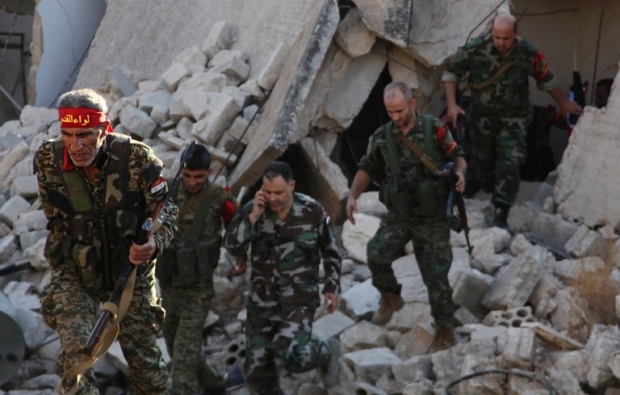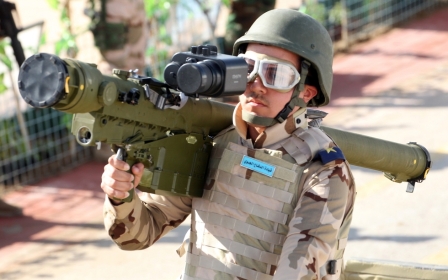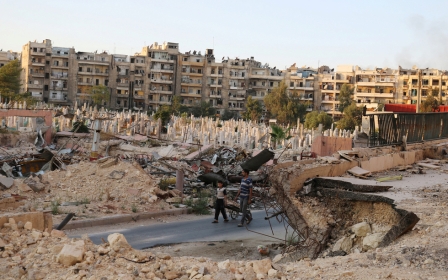UN Syria envoy's offer could hand Aleppo to Assad
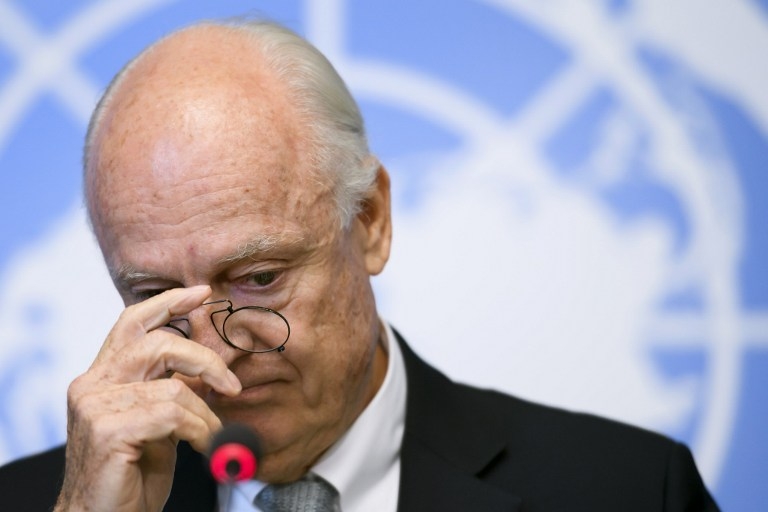
Last Thursday, the UN Syria Envoy Staffan de Mistura appealed directly to Jabhat Fateh al-Sham, the rebranded version of al-Qaeda’s Syria affiliate, offering to personally accompany the group’s fighters out of the city.
His offer comes two weeks of the heaviest bombardment yet seen in Syrian conflict, following the collapse of a US-Russia brokered cessation of hostilities in late September. The intense aerial bombardment has killed hundreds of people in eastern Aleppo where an estimated 275,000 people are believed to be trapped without access to food, medical aid or humanitarian assistance, leading to a rapid rise in food prices in recent months.
These attacks intensified after the 3 October collapse of the US-Russian talks on Syria. The US accused Moscow of not living up to its commitments to halt fighting and to ensure that aid reaches besieged communities. Russia, in turn, blamed this failure on the inability of the US to separate American-backed Syrian opposition forces from Jabhat Fateh al-Sham.As part of his 11th hour offer, De Mistura accused the group of holding “hostage” the civilian population of east Aleppo. He also urged Moscow and Damascus to accept a deal under which the fighters of that group would leave the city, while other insurgents and civilians could remain.
Despite it's good intentions, De Mistura's offer fails to take into account the limited enforcement capacity of the UN, the local dynamics of the armed conflict in Syria or the history of mistrust between the warring parties.
When it fails, as it is expected to do, it will only provide the Syrian regime and its allies with justification to continue their attack on eastern Aleppo.
One size fits all bombardment
Aleppo, the largest city in Syria, is the country’s former economic powerhouse. Its countryside is a rebel stronghold and one of their main supply lines from Turkey. The city has been divided into government and rebel zones - west and east, respectively - since mid-2012, shortly after the fighting began there.
The tit-for-tat ground battle between the two sides changed in late September when pro-Assad forces, supported by heavy Russian air support, launched an offensive in an attempt to restore control over the whole city.
The Syrian regime describes all groups opposing it, including civilians, as terrorists and, with its allies, has been attacking areas in the city based on this definition. So expelling Jabhat Fateh al-Sham’s fighters from Aleppo, as De Mistura has proposed, will not stop the city's bombardment.
He also vowed to recapture all of Syria, adding that he prefers to do so using local deals and amnesties that would allow rebels to leave to other areas. In their attempt to capture Aleppo, the Syrian regime and Russia will continue to use a total war strategy which an Amnesty International examination found "deliberately and systematically" targets civilians and civilian facilities.
These war crimes are aimed not only at fighting radical groups like Jabhat Fateh al-Sham, but also at evacuating the local population in Aleppo, as has been done in other areas in Syria.
Bad precedents, faith lost
The UN Syria envoy's offer also did not take into account the implications of such a deal would have on the conflict's local dynamics.
“If we agreed on evacuating Jabhat Fateh al-Sham from Aleppo today, the regime will demand the evacuation of Ahrar al-Sham tomorrow and the rest of the groups later on,” Abou Youssef al-Muhajir, the military spokesman for the Islamist Ahrar al-Sham movement, told Zaman al-Wasl, a news website close to the Syrian opposition, earlier this week.
More broadly, Syrians have also lost faith in the ability of the international community to pressure the Syrian regime to hold up its end of the deal. Anas Rasheed, a local resident of the besieged Al-Ansari Mashhad district of Aleppo, told me this week that he and others no longer trust Assad or the international community.
“What kind of guarantees can De Mistura give in order to protect civilians in Aleppo, if Jabhat Fateh al-Sham fighters agree to leave? The UN has not been able to pressure Assad to allow aid to be delivered to the besieged areas. No one held Assad accountable for using chemical weapons or for the systemic targeting hospitals, schools, bakeries,” he said.
Handing Assad Aleppo?
Importantly, there are well-founded concerns among Syrians on the ground that the offer could be used to justify and legitimise the Syrian regime's attacks on civilians.
“De Mistura is promoting Assad’s version about what’s happening in Aleppo," Mustafa al-Abdallah, a media activist in Aleppo, told me.
"He knows, like everyone else, that Assad is not fighting Nusra in Aleppo. Assad is fighting everyone opposing him especially civilians. Thus De Mistura, who knows that this offer won’t work, is giving the regime the green light to continue its attack on Aleppo and is providing him with a justification for doing that under the pretext of fighting Nusra."
The deal oversimplifies the complexities of this conflict. The Syrian regime’s attack on Aleppo is motivated by much more than defeating 900 fighters of a radical group. De Mistura should have focused on protecting civilians alone and stopping the regime’s violations rather than justifying them.
- Haid Haid is a Syrian columnist and researcher and Chatham House Associate Fellow. Focus: Security policy, conflict resolution, Kurds and Islamist movements. He tweets @HaidHaid22.
The views expressed in this article belong to the author and do not necessarily reflect the editorial policy of Middle East Eye.
Photo: United Nation's Syria envoy Staffan de Mistura gestures during a press conference on the Aleppo situation on 6 October 2016 at the UN Offices in Geneva (AFP)
This article is available in French on Middle East Eye French edition.
New MEE newsletter: Jerusalem Dispatch
Sign up to get the latest insights and analysis on Israel-Palestine, alongside Turkey Unpacked and other MEE newsletters
Middle East Eye delivers independent and unrivalled coverage and analysis of the Middle East, North Africa and beyond. To learn more about republishing this content and the associated fees, please fill out this form. More about MEE can be found here.



